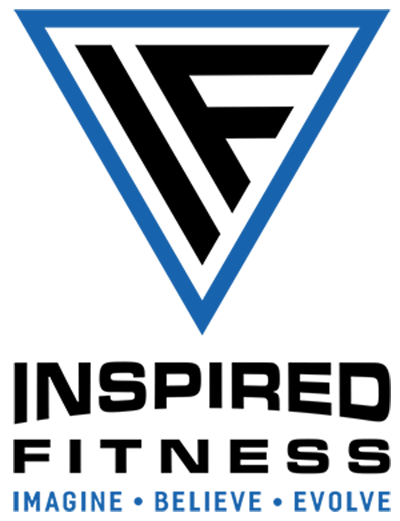How To Build Muscle In Your Sleep - Practical Tips To Improve Your Workout Recovery
Your workouts this week. Your current diet or nutrition plan. The new workout strategies you’re using. All these have one important thing in common!
None of them matter nearly as much as you think if you’re not paying close attention to your recovery!
No matter the fitness goal you have in mind, whether it be to gain muscle, lose body fat, improve performance and conditioning, or overall body composition, we all tend to place the most focus on what we’re doing in the gym. To be sure, intense workouts of whichever sort are a great and necessary stimulus.
Next, we then place the second-most emphasis on our diet and nutrition (or maybe for some, our supplementation regimen); which again is a critical factor in developing the physique or performance we have in mind as our goal.
BUT - where the real optimization begins to come into focus, is during periods of recovery, and all the effort that you put into ensuring that those periods are sufficient and as optimized as possible for you, your lifestyle and your goals.
Within the space of this “recovery window” your body has the opportunity to repair damaged tissue, remove waste, deposit new structural proteins, build muscle, modify metabolism to meet new and increasing energy demands, and heal.
Shortchanging the recovery then becomes an exercise in compounding damage from which it’s increasingly more difficult to recover.
Here are some recovery strategies that you can incorporate into your weekly routine:
Return your muscles to their normal “length-tension” relationship
Static stretching (what you typically think of as a stretching program)
Active stretching (slowly taking your body through the normal range of a variety of exercises that you commonly do, and spending more time in the lengthened position to optimize mobility)
Get a massage and / or use a foam roller to relieve areas of muscular tightness (or knots)
Another similar approach would be to use a percussive massage tool, such as the Theragun, or HyperVolt to relieve this sort of muscular tightness, or attempt to reduce overall soreness and improve range of motion (use also prior to training)
Manage your nutrition
Stay hydrated throughout the day
Focus on foods which are minimally processed
Avoid heavy meals late at night before bed, particularly avoiding foods with high-sugar content
Keep the protein content of your diet relatively high to support muscle repair, and spare muscle protein during periods of high energy demand
Fuel your workouts with readily-digested carbs, and include carbs post-workout in order to blunt the release of stress-induced cortisol
If your stress levels are moderately-high, or high, consider avoiding the ‘keto-approach’ to nutrition until your stress levels normalize.
Sleep More
One of the greatest challenges we all face, is getting sufficient sleep each night, and improving the quality of our sleep (focus here is on the deep phase of sleep).
During sleep, not only does your body physically rest, but the hormonal profile is one which supports cognitive and physical health optimization.
Reduced cortisol, increased testosterone and growth hormone, modulation of hunger-regulating leptin and ghrelin, among others:
Aim to sleep for at least 7 hours per night.
Consider using a wearable or other device to help track your sleep.
Reduce your daily stress & manage responses to unavoidable stressors
Over time, the barrage of information that we’re exposed to has only increased, to the point of overstimulation, and whether or not we’re aware of it, a heightened stress response.
Everything around us is specifically designed to capture our attention; to raise or level of urgency or excitement or importance of almost everything - and mostly about things which aren't urgent or even important at all.
We are all biologically wired to pay attention to anything which seems like it could be an emergency or danger of any sort. Our body responds with increasing stress hormones designed to help us to run like hell away from a predator or fight like hell if you need to:
Try to relax more,
Avoid excessive stimulation, particularly at night,
Reduce blue light exposure in the evenings,
Limit screen time where possible and before bed,
Practice meditation or other forms of mindfulness.
Overall, aim to implement these strategies into your daily lifestyle for leveling up your recovery to dominate your fitness and physique goals
Get a minimum of 7 hours of sleep each night
Work on being as relaxed as possible throughout the day
Work on reducing external stimuli, including screen time at night
Start a meditation or other mindfulness focused practice to take control of your mind and emotions. Emotions have physical responses. The stressful emotions result in stressful physical effects
Once your workout is over, bring your mental intensity level right back down. Try to become almost meditative
Focus your nutrition on minimally-processed, nutrient-dense foods
Foam roll or use a massage gun before and after your workouts
Train hard. Really challenge yourself










We all have a sense that highly-processed foods aren’t exactly healthy for us. BUT, did you know there is a classification of foods (really products) that are called Ultraprocessed Foods orUPFs?
Chances are you aren’t aware of what this specifically means and the types of additives that are included during processing.
In Part 1 of this 2 Part Blog, we’ll review what ultraprocessed foods are, the top 3 reasons why you eat ultraprocessed foods in the first place, the 4 keys to grocery shopping to minimized process food consumption and how ultraprocessed foods have become a part of our culture - from the Hawaiian perspective.
Enjoy!